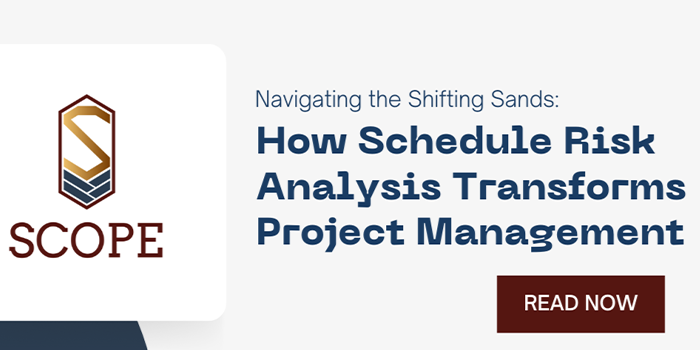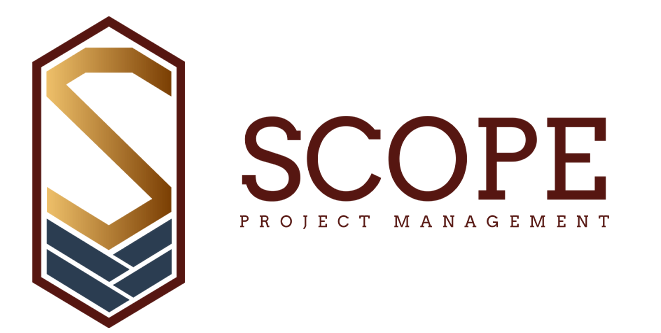
Why Does the Critical Path Change?
Navigating the Shifting Sands: How Schedule Risk Analysis Transforms Project Management
Why Does the Critical Path Change? Unleashing the Power of Schedule Risk Analysis in Project Management
🚧 Ever been blindsided by a shifting critical path? 🚧
In project management, few surprises are as unsettling as realizing that your project’s critical path has changed mid-way through. Imagine navigating a complex project only to discover that a seemingly minor task has suddenly become the linchpin of your entire timeline. This isn’t just an occasional hiccup; it’s a common scenario that stems from unaccounted risks and shifting project dynamics.
So, why does this happen? The culprit often lies in relying solely on deterministic scheduling methods that ignore the complexities of risk. This approach leaves teams vulnerable to unexpected shifts in the critical path.
Understanding the Critical Path and Its Dynamics
The critical path consists of the longest sequence of tasks that dictate the project’s completion timeline. Any delay in this path has a direct impact on project delivery, making it a focal point for project managers.
However, various factors—including resource constraints, unforeseen events, and underestimated durations—can cause shifts in this critical sequence. Traditional Critical Path Method (CPM) analyses often treat each task with a fixed duration, failing to account for the uncertainties that can derail timelines.
Integrating Schedule Quantitative Risk Analysis (QRA)
Here’s where Schedule QRA steps in!
What is Schedule QRA? It’s a probabilistic approach that utilizes Monte Carlo simulations to evaluate uncertainties across your project schedule. Instead of a fixed duration for each task, QRA allows project managers to assign a range of potential durations, giving a realistic picture of likely project timelines.
Key Insights from QRA:
- True Critical Path: Identify which tasks genuinely drive project completion by considering risks.
- Risk Drivers: Uncover the uncertainties most likely to affect your timeline, enabling better risk management.
Why Traditional Schedules Fall Short
Deterministic schedules, while providing a structure, come with significant limitations:
- Unaccounted Risks: They don’t visualize the impact of risks on task durations, leaving managers with an unreliable “best guess” timeline.
- Static Critical Path: These schedules don’t adjust for potential delays in non-critical tasks, leading to unexpected shifts.
🔄 Let’s change the game!
The Benefits of Integrating QRA in Your Scheduling
Embracing QRA transforms your project management approach from reactive to proactive. Here’s how:
- Realistic Project Timelines: QRA provides a range of probable completion dates, helping stakeholders make informed decisions about time, cost, and risk.
- Identification of True Critical Path: Focus resources on tasks that genuinely impact project delivery.
- Early Warning System: Detect potential delays early, allowing for timely interventions.
- Informed Risk Response: Proactively allocate resources and budgets to manage risks effectively.
- Enhanced Stakeholder Communication: Present a probability-based schedule that builds trust through transparency.
Why Scope-PM is the Perfect Fit for QRA Implementation
At Scope-PM, we understand the complexities of project management and the critical role that risk analysis plays in successful project execution. Our experienced team is well-versed in integrating Quantitative Risk Analysis (QRA) into project scheduling, ensuring that our clients have a realistic view of their project timelines.
- Expertise in Risk Management: We have a proven track record of implementing QRA effectively, helping our clients navigate uncertainties and maintain control over their projects.
- Tailored Solutions: Our approach is customized to meet the unique needs of each project, ensuring that we identify the true critical path and prioritize risks that matter most.
- Advanced Tools and Techniques: We leverage the latest tools and methodologies, including Monte Carlo simulations, to provide insightful and actionable analysis.
- Commitment to Success: At Scope-PM, we are dedicated to helping our clients achieve their project goals by anticipating challenges before they arise and optimizing resources for maximum efficiency.
Getting Started with QRA
Ready to implement QRA? Here’s a quick guide:
- Define Task Duration Ranges: Assign realistic ranges for each task based on historical data and uncertainties.
- Identify Risks: Catalog potential risks and their impacts on your schedule.
- Run Monte Carlo Simulations: Use scheduling software that supports QRA to analyze multiple scenarios.
- Analyze Results: Understand probable completion dates and identify risk drivers.
- Develop Risk Mitigation Strategies: Create targeted plans based on your findings.
- Update Regularly: Keep your QRA current as project conditions evolve.
Conclusion: Make QRA Part of Your Toolkit!
Integrating Quantitative Risk Analysis into your project scheduling approach is not just worth the effort; it’s essential for modern project management. By identifying the true critical path and highlighting potential risks, QRA helps you anticipate changes and avoid costly delays.
The critical path is your project’s lifeline—protect it with a realistic, data-driven approach. If you’ve ever faced a sudden shift in the critical path, consider adopting QRA with Scope-PM. Our expertise and insights can be the difference between a successful project and one plagued by delays and overruns.
💬 What are your thoughts? Share this Article and tag us we would like to hear them all!
